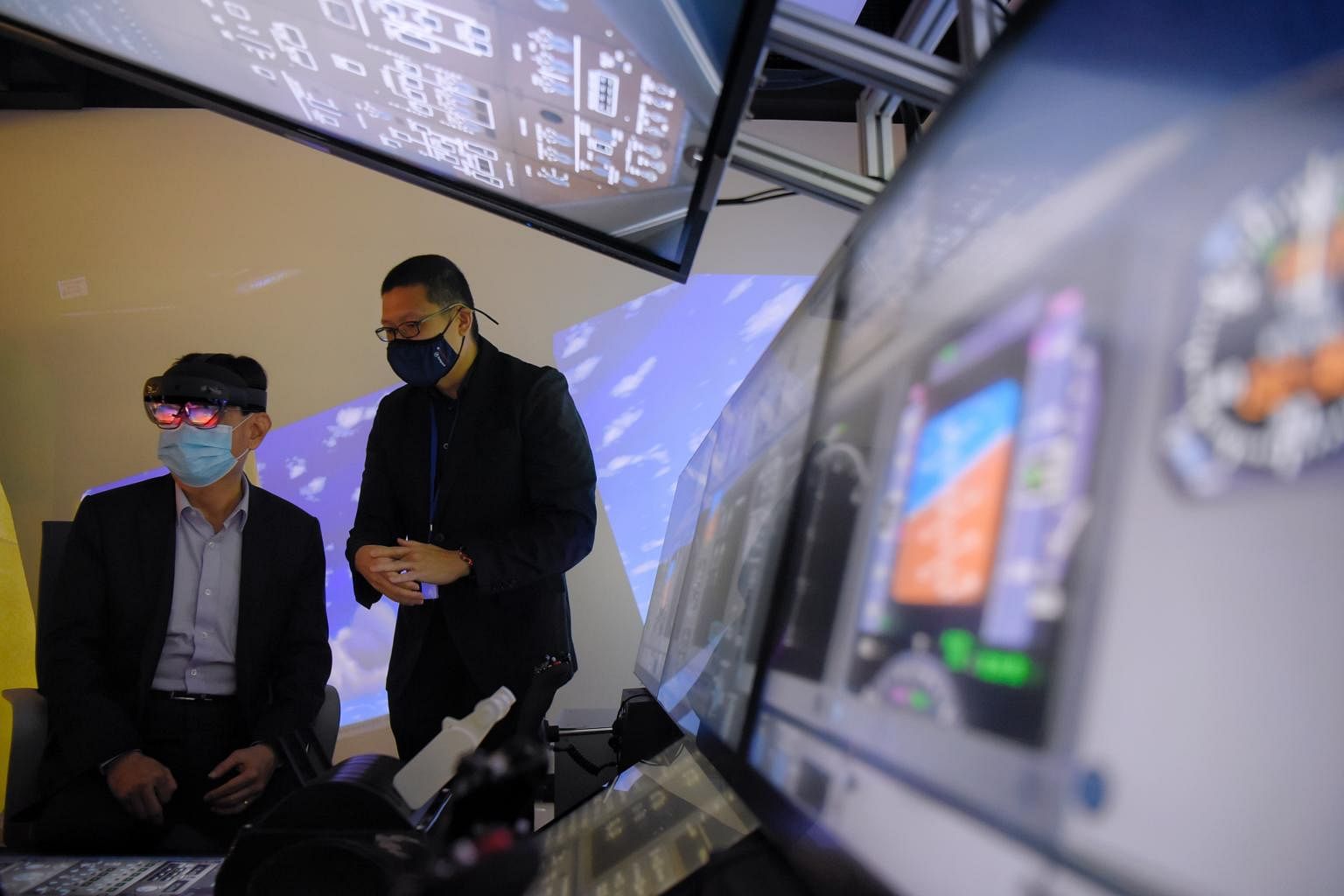SIA-NUS lab launched to help improve passenger sleep on long-haul flights
Sign up now: Get ST's newsletters delivered to your inbox
SINGAPORE - Passengers on Singapore Airlines (SIA) flights can look forward to more restful trips in future, should a newly created lab succeed in its research.
Over the next few years, SIA and researchers from the National University of Singapore (NUS) will work together to study the optimal time to wake up flight passengers for meals, among other initiatives. This could even pave the way for personalised meal times based on the individual passenger's sleep cycle.
This redefining of passenger air travel experience is among key objectives the SIA-NUS Digital Aviation Corporate Laboratory will seek to achieve.
The research facility, which is located at the Innovation 4.0 Building at the NUS Kent Ridge Campus, was launched on Monday (Jan 10).
It cost $45 million and was jointly set up by SIA and NUS, and is supported by the National Research Foundation.
A mock-up cabin that can simulate in-flight air conditions has been set up at the facility, such that research on how passengers rest during flights can be carried out accurately. The mock-up includes both business and economy class seats.
Participants to be recruited for an upcoming research study at the lab will stay in the cabin for six hours or more, as they would during long-haul flights. Various sensors installed in the cabin will track their facial expression, heart rate, posture and sleep stages.
The new lab will also aim to improve pilot and cabin crew training through technology.
To this end, a cockpit simulator has been set up at the facility to develop a new augmented reality/virtual reality training system for pilots. If successful, the new system will allow pilots to refresh their skills even from their homes and reduce their dependence on training simulators, which are both expensive and not many in number.

The SIA-NUS Digital Aviation Corporate Laboratory will also look into revenue management and dynamic pricing, as well as improving employee wellness.
It will also support SIA's sustainability goals.
SIA chief executive Goh Choon Phong said at the launch on Monday: "Many of these initiatives will also support the digital transformation of Singapore's aviation ecosystem as a whole.
"We could potentially also be working with NUS to commercialise some of these technologies going forward."
Deputy Prime Minister Heng Swee Keat officiated the launch of the lab. He said he was glad that SIA is accelerating its digitalisation efforts to seek out new opportunities even amid the Covid-19 pandemic.
Mr Heng, who is also the Coordinating Minister for Economic Policies, said he hopes more companies here will consider strengthening their collaborations with universities and research institutes.

The lab will tap research capabilities from NUS' Business School, College of Design and Engineering, Duke-NUS Medical School, Institute for Health Innovation and Technology, Institute of Operations Research and Analytics, and School of Computing.
More than 70 researchers and PhD students are expected to be involved in the lab over the next five years.
NUS president Tan Eng Chye said the lab will award PhD scholarships to aspiring students to work on projects there and offer internship opportunities at SIA.
The lab is the seventh corporate laboratory established at NUS and the 19th in Singapore.
During a media briefing last Friday, SIA senior vice-president of information technology George Wang said work on the lab started in October 2020.
On why SIA decided to proceed with the partnership with NUS despite the highly uncertain environment for international air travel, Mr Wang said: "We are not just looking at the short-term benefits, we are looking at the long-term growth for the company.
"We believe that innovation is important for us to be the leading airline in the world. We want to emerge from this pandemic stronger - not just survive it."



